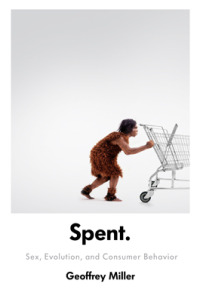Book Review: The Winner-Take-All Society
 If you have ever wondered why bankers or company CEOs get paid so much or why it is that soccer clubs around the world are going bankrupt while some of their slightly above average players earn more in a week than most of us do in a year, then The Winner Take-All Society is the book for you. What you should know straight away is that this book was first published in 1995 and perhaps it is because the authors, economists Robert Frank and Philip Cook got it so right back then, that the publishers decided to bring out an updated edition.
If you have ever wondered why bankers or company CEOs get paid so much or why it is that soccer clubs around the world are going bankrupt while some of their slightly above average players earn more in a week than most of us do in a year, then The Winner Take-All Society is the book for you. What you should know straight away is that this book was first published in 1995 and perhaps it is because the authors, economists Robert Frank and Philip Cook got it so right back then, that the publishers decided to bring out an updated edition.
The book essentially breaks into two parts. The first explains how winner-take-all markets come about, it looks at the pace with which they have been growing in a global and technologically-connected world and it looks at how this creates an enormous gap in income between rich and poor. The core reason why winner-take-all markets have grown is that the market for talent is now characterised by high levels of information and labour mobility. So for example, a top CEO can now not only move to another firm in the same industry but can move across industry and geographic boundaries. Each move brings a big pay rise. And if you want a top executive to stay you need to give him/her a pre-emptive rise in salary. Either way executive salaries shoot upwards. The same thing has been happening in movies, music, sport, modelling and in the worlds of ‘unknown celebrities’ such as law, medicine, consulting and yes even academe!
The second part of the book looks at the economic consequences of this income and wealth inequality. For example, the authors argue that winner-take-all markets attract talent far out of proportion to their contribution to national output. Witness how fields like science and engineering have struggled to attract interest while our best and brightest compete to become hedge fund traders. And we don’t need reminding of the societal impact of the excesses of the finance industry. A variety of other consequences are explained ranging from why athletes often pay with their lives to reach the top to why media industries seem be obsessed with finding outputs such as books and movies from celebrities. In short, this is a highly accessible and well-argued read that is a book for our time.






 John Fahy
John Fahy